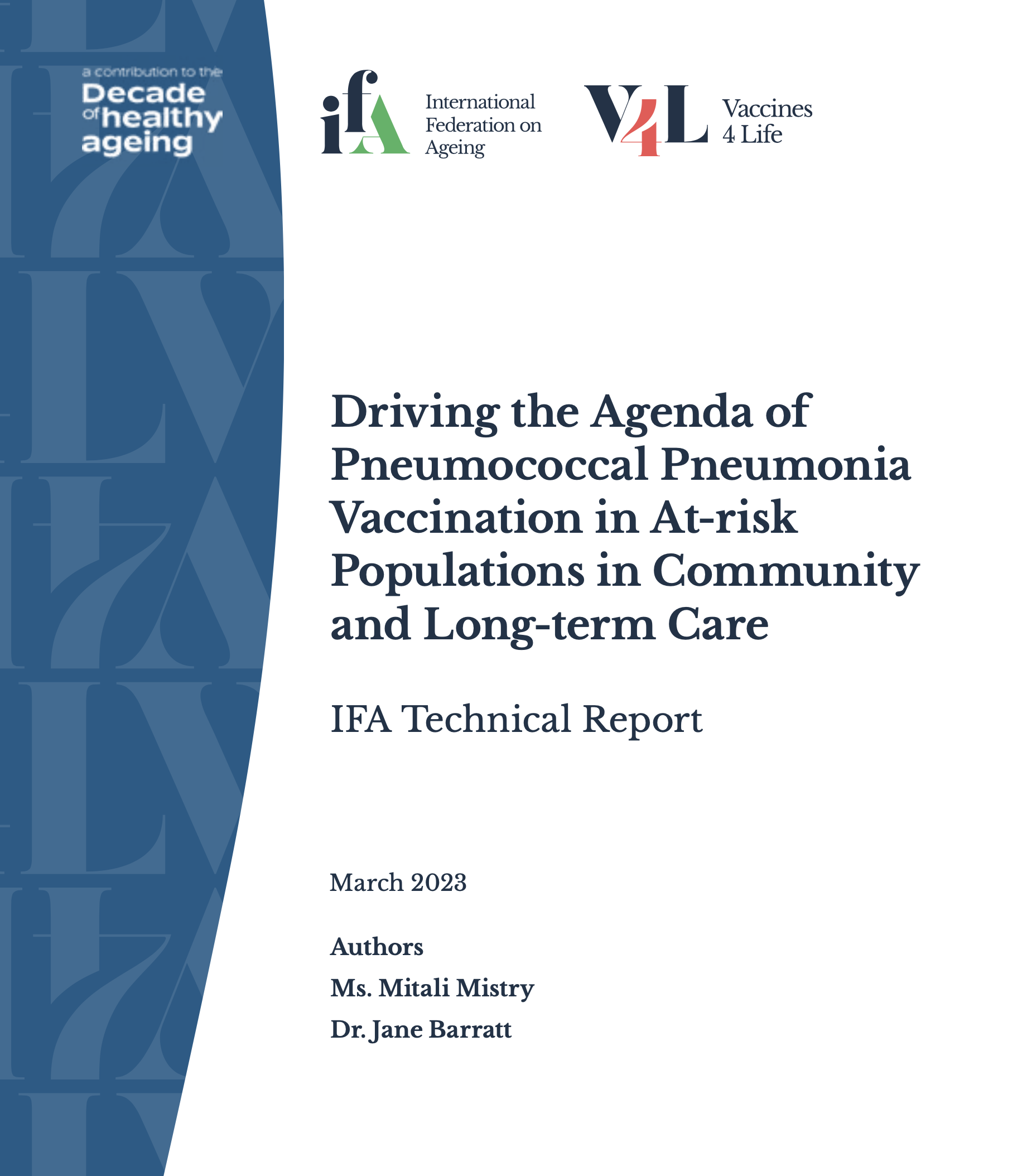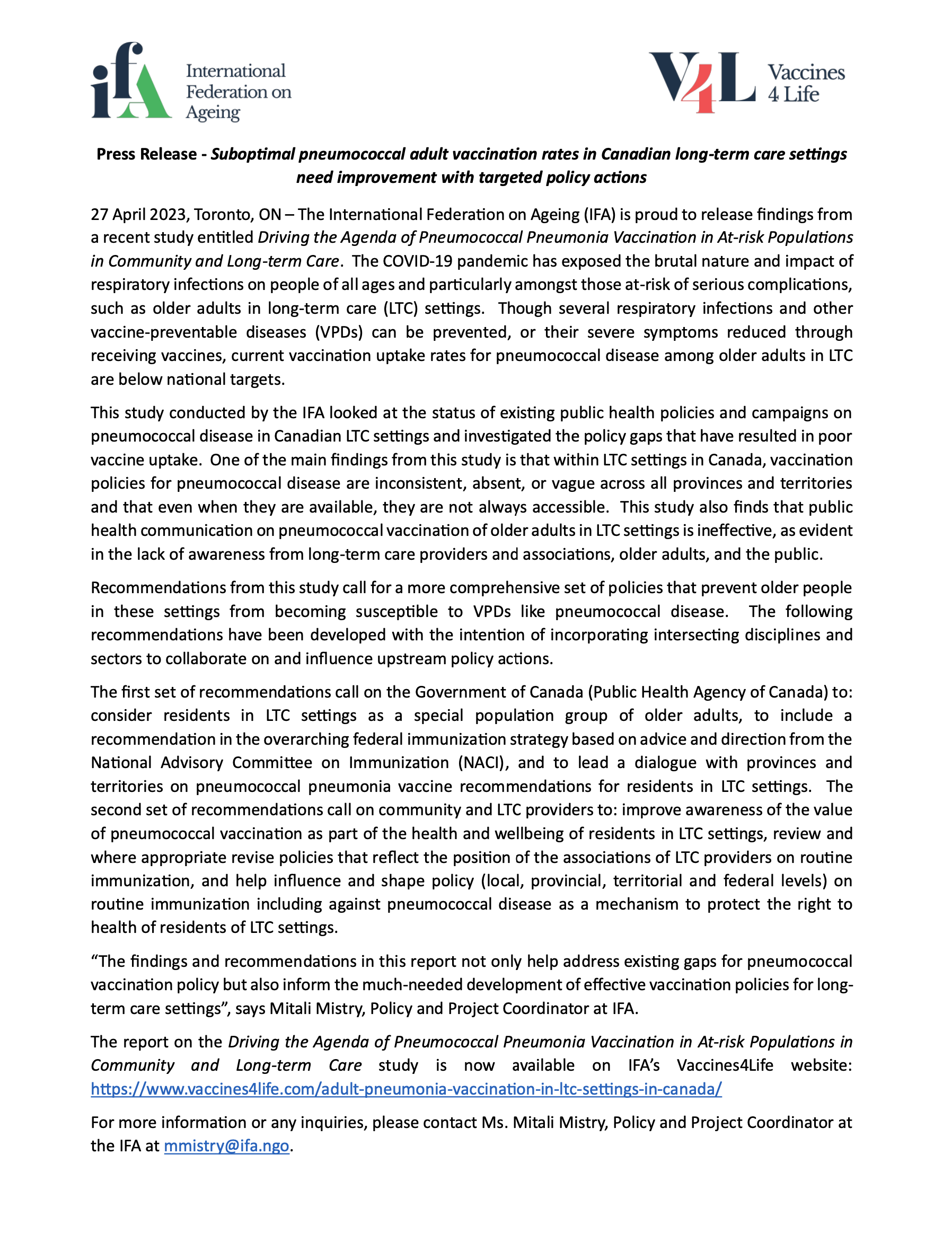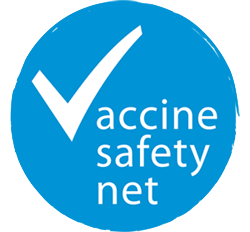Protecting Progress of Vaccination Throughout Life

Written by:
Jane Barrat, Secretary General, International Federation on Ageing
Unity only happens when we all walk together, and now is the time to end immunization inequity in Canada.
The pandemic has touched us all in very unique and painful ways. This word, “COVID-19,” has struck fear in many of us, especially those whose families and friends have been affected, some dying, some surviving the virus but being left with considerable functional changes, and some very fortunate to have escaped serious symptoms. Recently, the Director General of the World Health Organization, Dr. Tedros Adhanom, said to Canadians, “We might be tired of COVID-19 but it’s not tired of us. The virus has no ideology or beliefs; its only goal is to spread.”
Before, during, and while the world recovers from the pandemic, what’s important to individuals of all ages — including older people and those with chronic conditions — is their function, their ability to live independently, and their ability to contribute to their family, community, and society.
While the world eagerly anticipates a vaccine to combat COVID-19, we must also recognize the serious and often life-altering complications of well-known vaccine-preventable diseases such as influenza, pneumonia, shingles, and pertussis, all of which affect seniors on a daily basis. Despite the fact that these populations are particularly susceptible to the infections and over-represented in morbidity and mortality rates globally, the long-term adverse impact on the functional ability of older adults and the social and economic burden somehow seems less important in the big scheme of things.
Read the full article here.

Pneumococcal disease is a leading cause of hospitalization and mortality in Canada. There is a high prevalence of this disease amongst populations that are most at-risk of serious complications from infection, such as older adults in long-term care settings.
The ‘Driving the agenda of pneumococcal pneumonia vaccination in at-risk populations in community and long-term care’ study was conducted to understand the status of existing public health policies and campaigns on pneumococcal disease in community and long-term care settings and its implications on the uptake of pneumococcal vaccination. The report highlights policy gaps for pneumococcal vaccination across long-term care settings in Canada and accordingly provides recommendations for policy improvements.
Pneumococcal disease is a leading cause of hospitalization and mortality in Canada. There is a high prevalence of this disease amongst populations that are most at-risk of serious complications from infection, such as older adults in long-term care settings. Check out the technical report to learn more.








